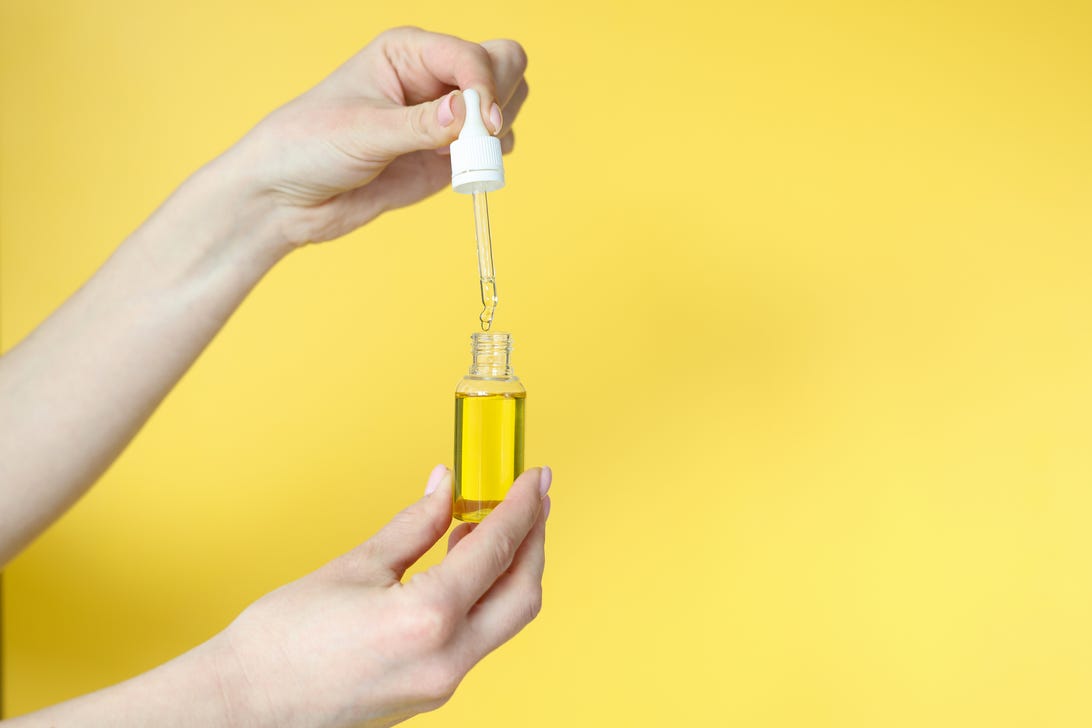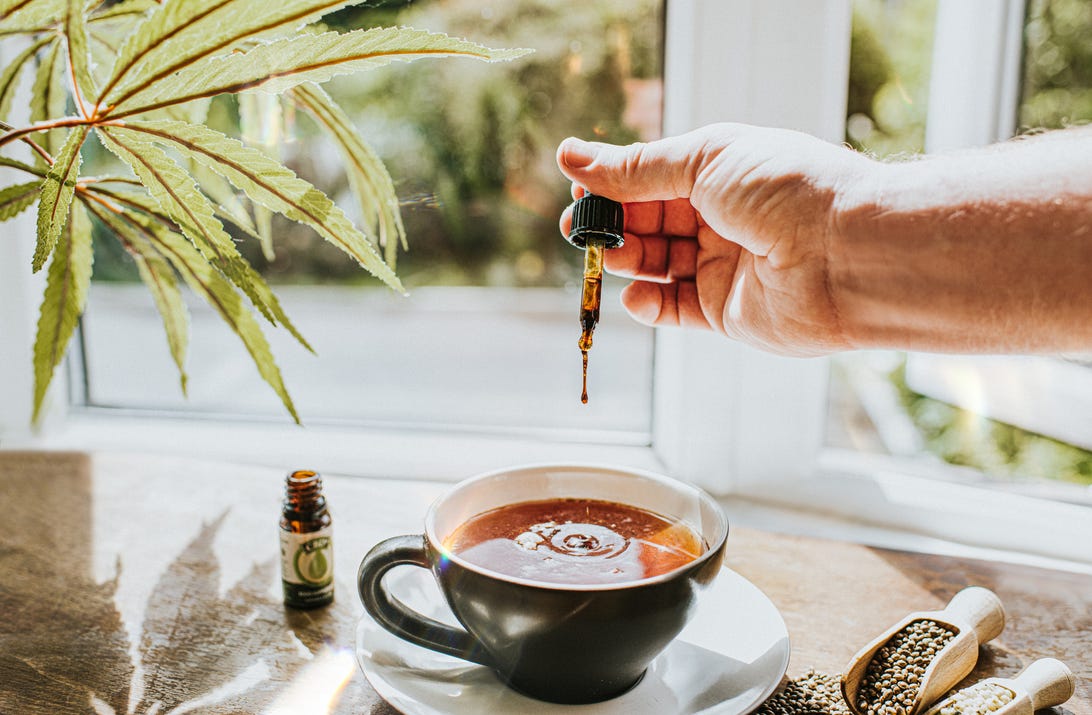

It's safe to say that CBD is pretty mainstream now -- you can buy it in grocery stores. No longer is it considered a trendy health hack but a legitimate option for pain and anxiety relief. But even with the largely widespread acceptance, there are still a lot of questions about how much and how often you should take CBD.
CBD products do not have federal oversights or regulations. In fact, up to 70% of CBD products you buy on the internet either have more or less CBD than listed on the label. Finding the ideal CBD dosage for pain or anxiety can be difficult. Here's how to make it easy.
What can you use CBD for?
Research, though limited, indicates that CBD has legitimate health benefits. While there is no FDA regulation, research has shown that full-spectrum and broad-spectrum CBD effectively treat pain and anxiety. There's only one FDA-approved CBD product, called Epidiolex, that's available by prescription. Epidiolex treats seizure disorders such as Lennox-Gastaut syndrome and Dravet syndrome.
However, there are several other benefits and uses of CBD products.
The most common uses of CBD
The CBD market is continuously expanding with new products. However, there are four main types of CBD product categories. All of which will vary in potency and dosage per unit.
Oils and tinctures
CBD oils generally come in either a liquid or capsule form. You can take the extracts independently or use the dropper to add them to food or drinks. Liquid tinctures are usually taken directly under the tongue.
"Tinctures are generally taken at higher concentrations than oils. This means that if you were taking 1 milliliter of tincture, you would need to drop the concentration down to 0.5 milliliters. A good rule of thumb is to start with a small dose (0.25 milliliters) and slowly increase your dose over time," says Reda Elmardi, a registered dietician and certified nutritionist.
Edibles
Edible CBD products are quickly becoming very popular, likely because of their convenience and flavor profiles. With edibles, you have several options in flavor, potency and prices. They have everything, from gummies to cookies, chocolates and even granola bars.
Topical
CBD is also available in topical creams and salves applied directly to the skin. Popular forms are lotions, creams or ointments. Topical CBD products are good options for muscle pains, joint inflammation or nerve pain.
Topical CBD is one of the more difficult forms for determining dosage. Not only does potency vary by product, but also varies by how much you use each application. It's important to follow manufacturer instructions carefully.

How to determine the best CBD dosage for you
CBD products express dosage in milligrams. Epidiolex starts with a dosage of 2.5 milligrams taken twice a day. After a week, you can increase the dosage to 5 milligrams twice a day. Federal regulation makes determining dosage straightforward.
For the rest of the products on the market not regulated by the FDA, there are no established guidelines for CBD concentration, which makes determining how much you should take a little more difficult. There are a few key factors you need to keep in mind -- your weight, what you're treating and the concentration of the product.
The ideal dosage for you will vary depending on what you're using it for and what form you're taking. Don't forget that different forms also mean how quickly it takes effect. Generally, edibles, oils and capsules will take roughly 30 to 60 minutes to take effect. Smoking or vaping CBD will bring it on significantly quicker since the CBD absorbs into your bloodstream rather than your digestive system.
CBD dosage will vary by condition
In general, the CBD dosage is dependent on the disease and its ability to be managed by CBD. The research that is available on CBD treatments has very varied dosage levels. Clinical studies have varied in oral doses from 100 to 800 milligrams a day. Others administer lower levels around 40 milligrams. A 2019 study investigating CBD for anxiety found that 300 to 600 milligrams reduced anxiety symptoms. However, that study was limited to 57 adult males.
"For generalized anxiety or sleep disorders, 25 to 75 milligrams per day is recommended, while for PTSD, 33 to 50 milligrams per day is recommended. In severe anxiety, a patient's dose might be increased to 300 to 600 milligrams. If the patient is experiencing pain due to chemotherapy, 50 to 60 milligrams is recommended, with a maximum daily dose of 600 milligrams," says Kimberly Langdon, a board-certified MD.
How much CBD is best for you will depend on your body. Your body weight and existing medications will influence the ideal dosage for you.
Can you take too much CBD?
A clinical review of studies confirmed that people tolerate doses as high as 1,500 milligrams a day. We want to stress that the research around CBD dosage is still really young, so there is not much to point to about how much is too much for people. More research is needed to definitively conclude the ideal dosage for each condition.
Not a ton of known side effects associated with CBD products. Though fatigue, diarrhea and appetite changes have been reported. The FDA states that CBD can cause liver damage and potentially impact the other prescription medications you're taking.
If you're starting your CBD journey, it's best to slowly build your dosage so you can monitor how it affects you.
"The idea is to start very low (i.e., 5 milligrams per use) and increase daily usage by 5 milligrams every two days until you start feeling results. Then, stop increasing and keep using the same number of milligrams or drops. For many people, the amount that provides modest benefits in the first couple days will, after consistent use, provide more and more benefit over time," says Dr. Dustin Sulak, an integrative physician and leading cannabis clinician.

How to calculate CBD dosage
For some forms of CBD, determining how much is each unit is simple. Capsules or gummies tend to have an expressed milligram content, making dosage much easier than oils or creams.
Oils or tinctures with a dropper bottle list the CBD content for the total liquid bottle. So instead of eating a gummy that's 50 milligrams, it will look more like 7,500 milligrams of CBD in the 30-milliliter bottle. Some bottles will offer serving sizes -- like one drop -- to indicate dosage. This allows you to have greater control over how much you are intaking, but even still, it's not a perfect science.
Some bottles with a traditional nutrition label on the back will tell you exactly how much is in one dropper. If you are unsure, it's a good idea to reach out to the company to find out. It can be difficult to figure out how much you're intaking for the bottles that do not break down by serving size and offer only the total amount. It is difficult, but not impossible; it just takes a little bit of math.
Say you have a 30-milliliter bottle of CBD oil, and each drop is 0.05 milliliters.
To determine how many milligrams of CBD per milliliter, you divide the total milligram content by how much the bottle is. In this example, the math would look like this:
7,500 milligrams divided by 30 milliliters = 250 milliliters.
There is 250 milligrams of CBD per milliliter for this product. Next, you want to know exactly how much CBD is in each drop.
250 milliliters x 0.05 milliliters = 12.5 milliliters per drop.
This calculation works with any bottle of CBD. Once you know how much CBD is in each drop, you can accurately take your ideal amount. "To ensure the best results, keep track of how much you take, how many times a day you take it and rate your symptoms daily (by rating 1 to 10, 10 being best) to see if they are getting better or worse," Sulak advises.
Too long, didn't read?
CBD is a continually evolving field in both products and research. While research is lacking, what is available suggests that CBD does have therapeutic benefits and is generally very well tolerated by people. Still, more research is needed to really dig into the long-term side effects and best dosage markers for the average person.
In place of federal regulations, use your best judgment regarding how much CBD you are taking. Talking to your doctor about dosage is always a good idea when in doubt.
The information contained in this article is for educational and informational purposes only and is not intended as health or medical advice. Always consult a physician or other qualified health provider regarding any questions you may have about a medical condition or health objectives.









 Add Category
Add Category